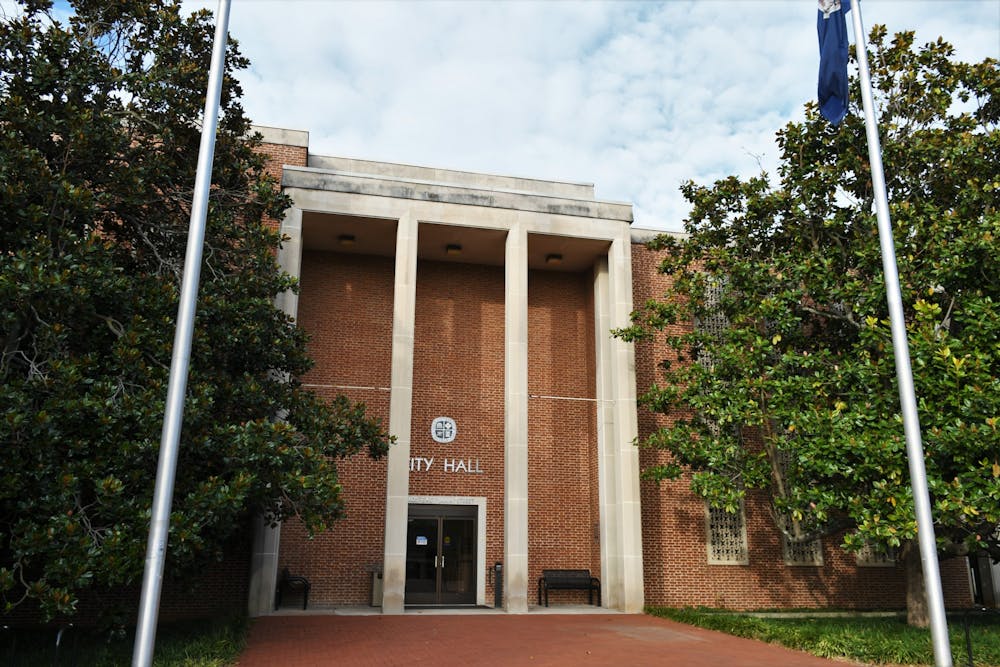Charlottesville City Council unanimously approved First United Methodist Church’s appeal of the Board of Architectural Review’s denial of Certificate of Appropriateness for a solar panel project in Monday’s session. The Council also heard from community members about the real estate tax proposal that will affect the 2024 City budget.
The church — located in the historic district of Charlottesville — originally requested to remove portions of the building’s slate roof to install asphalt roof tiles under proposed solar panels. The BAR previously denied the church’s request in their meeting Jan 18.
Council member Michael Payne criticized the BAR for putting up roadblocks in the way of solar panels and other renewable energy infrastructure by denying the request. He said the original BAR denial likely hurt the cause of historic preservation.
“[This saga] created an impression among a lot of people in the community that this is a body that is oblivious to the big picture and is throwing up barriers to renewable energy,” Payne said. “It's going to take a long time to recover from that reputational damage in the community.”
Breck Gastinger, vice chair of the Charlottesville BAR, said the Board is supportive of solar panels and they have previously approved 15 requests for panel installations. He said the church’s original request was denied because there was risk of damage to the slate roof during panel installation, which conflicts with BAR guidelines.
Gastinger warned against the removal of the slate material and construction of a new roof, which would require a large amount of material, energy and waste.
“Historic preservation is inherently a sustainable practice,” Gastinger said. “It is often said that the greenest building is the one that’s already built.”
Congregation member Fred Schneider said he understands the BAR’s desire to preserve historic buildings’ character-defining features. He noted, however, that the needs of building owners and users must be balanced with the needs of preservation.
The proposed solar panels are predicted to save the church around $11,000 annually in utility costs. Schneider also said other concerns include efforts to keep older buildings viable and promote environmental sustainability.
“[Approval of solar panels] demonstrates that the city is supportive of efforts both public and private, to use energy conservatively and innovatively, to respond to changing needs and global concerns,” Schneider said.
Council and community members also discussed a proposal to maintain the current real estate tax rate at $0.96 per $100 of assessed value for the 2024 fiscal year City Manager’s Proposed Budget.
Community member Janie Evans said she is concerned she will no longer be able to live in Charlottesville because of the tax rate. She proposes the real estate tax rate be reduced to either about $0.77 per $100, which is what the rate would be without the 25 percent real estate assessment increase of the last two years, or a compromise of $0.86 per $100. According to the City Assessor’s office, property assessment values rose 12.33 percent in 2023 and 11 percent in 2022, accounting for higher property taxes which are calculated by multiplying the assessed value by the tax rate.
Community member Kimber Hawkey also said real estate taxes should be lowered. Hawkey said old houses like hers keep getting their assessments pushed up, and she called for more equity and transparency in how assessments are done.
The next opportunity for public comment on the budget for fiscal year 2024 will be Thursday.







